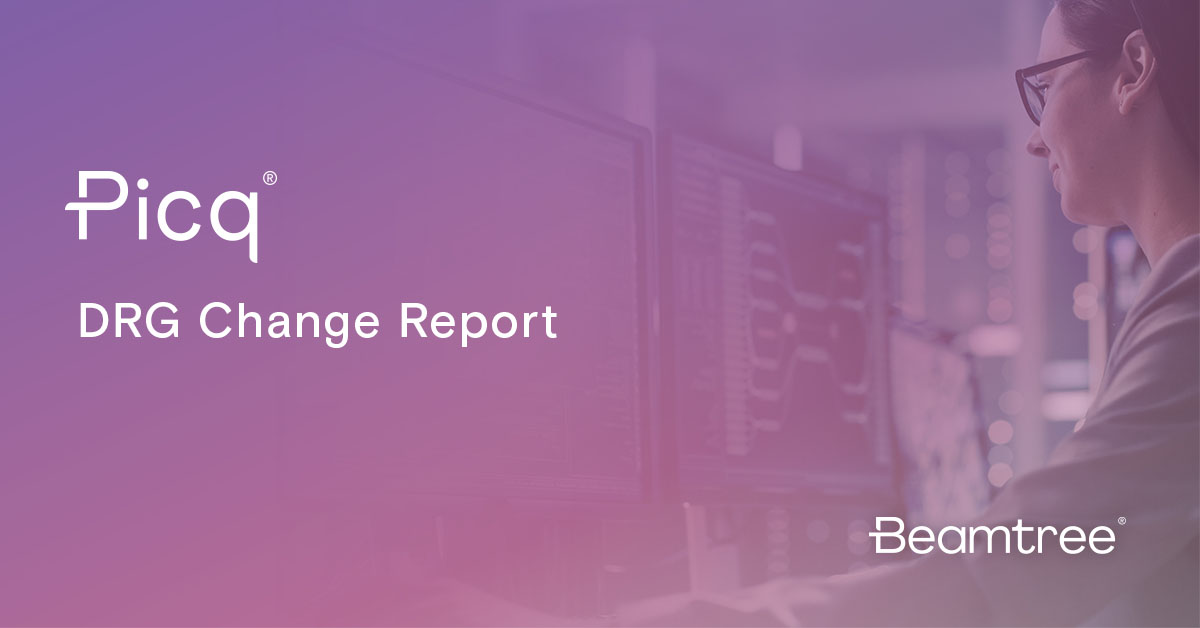
PICQ®’s new DRG Change Report highlights any coding changes and the impacts on Diagnosis Related Groups (DRGs), which in turn impacts hospital funding and informs education and training requirements.
Developed in response to user feedback, PICQ®’s DRG Change Report allows managers to observe any DRG changes that may occur because of internal auditing, as a result of new or modified documentation or due to the resolution of PICQ® indicators. This dynamic report can be used to drive quality improvement activities and inform targeted coding review.
Supporting managers answer the question “What is driving the change in weighted unit value?” this report shows results based on the first version and the latest version of an episode that comes through PICQ®. This dashboard provides information on:
- Average number of changes to patient episodes
- Type of changes made (Full ADRG change or complexity change)
- Identify specific DRG codes that were changed and the difference in NWAU
Thanks to the DRG Change Report, hospitals can review the reasons why changes have been made to particular DRGs. By noting significant changes, it allows coding teams to identify areas for improvement and further education opportunities for coders.
Improving the quality of coded data ensures that health services are properly remunerated for the services that they deliver. PICQ®’s DRG Change report provides insights and benchmarking into patient complexity at a DRG level and identifies episodes potentially under or over-coded compared with peers. The outcome may result in additional NWAU funding.
Want to know more about this dashboard? Book a demo by clicking the link below.







